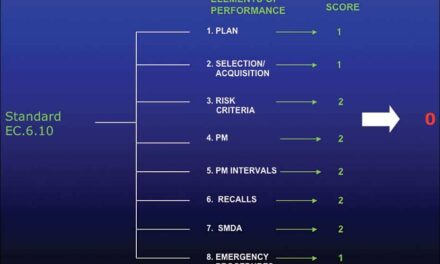The American Heart Association and The Joint Commission have announced the launch of the Comprehensive Heart Attack Center (CHAC) certification program. The new Advanced Disease-Specific Care (DSC) certification, available July 1, is available to all Joint Commission-accredited and non-accredited hospitals.
CHAC certification is based on clinical practice guidelines and recommendations published in Circulation that call for the implementation of a system of care for all time-sensitive cardiovascular disorders in an effort to minimize delays in patient care, including emergency medical services’ routing protocols to transport patients to the most appropriate level of care. It also meets the characteristics for a Level I STEMI Center (most comprehensive).
CHAC certified hospitals will be recognized for meeting standards that denote the highest level of commitment to providing consistent and optimal treatment for patients with acute coronary syndrome (ACS), including ST-elevated myocardial infarction (STEMI), non-ST elevated myocardial infarction (NSTEMI) and unstable angina, as well as complications related to ACS such as cardiac arrest and cardiogenic shock.
“The recent recommendations from the American Heart Association provide new guidance on how best to care for patients experiencing the deadliest types of heart attacks,” says Alice K. Jacobs, MD, vice chair for clinical affairs at Boston University Medical Center, volunteer expert and past president for the American Heart Association. “These are the heart attacks where survival is measured in minutes—and rapid delivery of guideline-directed care is essential for survival. Providing evidence-based care that improves the quality of care and outcomes for patients is central to the work of the American Heart Association.”
“With the addition of the Comprehensive Heart Attack Center certification, states, regions and communities now have a comprehensive framework to build an effective system of care for patients at highest risk,” says Patrick Phelan, MBA, executive director, hospital certification business development, The Joint Commission. “The new program joins our existing heart attack certifications with the American Heart Association, including Primary Heart Attack Center (Level II STEMI Center) and Acute Heart Attack Ready (Level III STEMI Center) to help hospitals elevate their cardiac programs—reducing variation and risk for a more consistent approach to every patient.”
Hospitals must provide 24-hours-a-day, seven-days-a-week on-site coverage for primary percutaneous coronary intervention and cardiac surgical services. Additionally, they must implement a multidisciplinary team approach that offers a full range of advanced hemodynamic support for the treatment of the most complex and critically ill patients, including those with cardiogenic shock and cardiac arrest, across the continuum of care.




